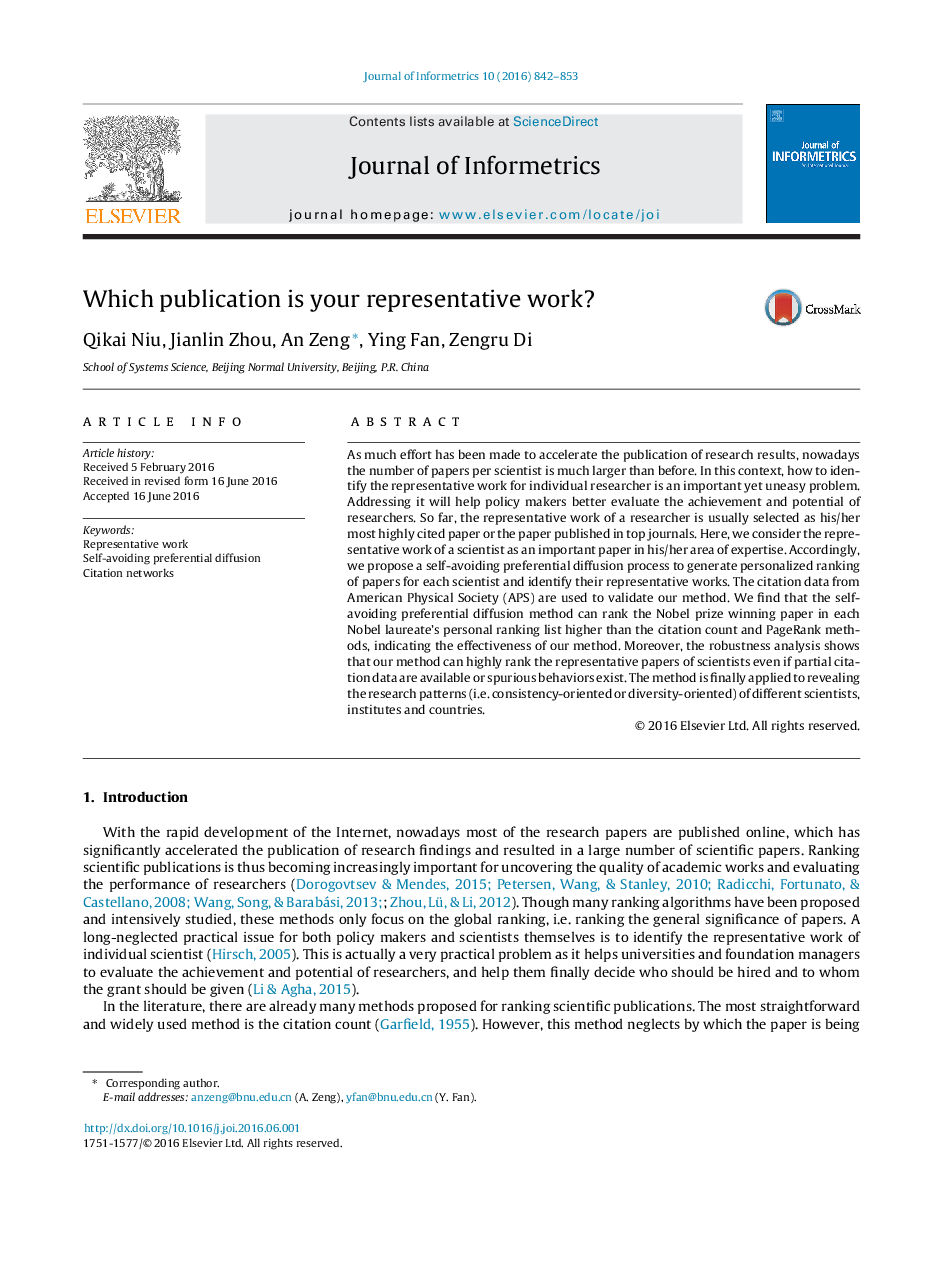| Article ID | Journal | Published Year | Pages | File Type |
|---|---|---|---|---|
| 4968142 | Journal of Informetrics | 2016 | 12 Pages |
Abstract
As much effort has been made to accelerate the publication of research results, nowadays the number of papers per scientist is much larger than before. In this context, how to identify the representative work for individual researcher is an important yet uneasy problem. Addressing it will help policy makers better evaluate the achievement and potential of researchers. So far, the representative work of a researcher is usually selected as his/her most highly cited paper or the paper published in top journals. Here, we consider the representative work of a scientist as an important paper in his/her area of expertise. Accordingly, we propose a self-avoiding preferential diffusion process to generate personalized ranking of papers for each scientist and identify their representative works. The citation data from American Physical Society (APS) are used to validate our method. We find that the self-avoiding preferential diffusion method can rank the Nobel prize winning paper in each Nobel laureate's personal ranking list higher than the citation count and PageRank methods, indicating the effectiveness of our method. Moreover, the robustness analysis shows that our method can highly rank the representative papers of scientists even if partial citation data are available or spurious behaviors exist. The method is finally applied to revealing the research patterns (i.e. consistency-oriented or diversity-oriented) of different scientists, institutes and countries.
Keywords
Related Topics
Physical Sciences and Engineering
Computer Science
Computer Science Applications
Authors
Qikai Niu, Jianlin Zhou, An Zeng, Ying Fan, Zengru Di,
